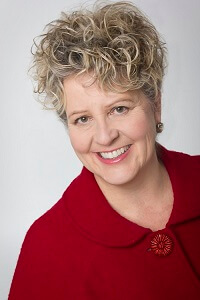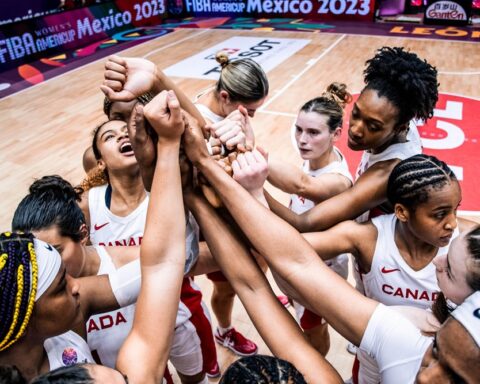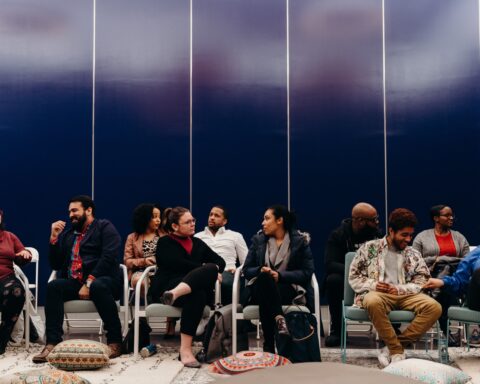Q: Could you tell me a little bit about your background in journalism?
A: I came to Ryerson in 2007, but before that I worked for 25 years as a political and economics reporter on Parliament Hill in Ottawa and at Queen’s Park here in Toronto. I was working for what is now Postmedia News service.
Q: How did you become interested in ethnic media?
A: I run the Local News Research Project, which focuses on local news and their role in cities. Ethnic media are one of the local news providers. In a city like Toronto, which is so diverse, and given the reliance of many people and different ethno-cultural communities on news sources — particularly in their own language or news sources that are tailored to their interests — it was a natural place for me to look as well.
I’ve done research on mainstream news media coverage of cities as well, but ethnic media was one of the things I found particularly fascinating.
Q: What fascinates you about the ethnic media?
A: I just think that there’s such an important element of helping people who have newly arrived in Canada, for instance, to understand the values of the place they have come to, to understand the rules, how it works, what’s important, who is important, how the politics function. I think that the ethnic media is an important touchstone.
Q: Over the course of your seven-year research, what have you found out and how do you think the ethnic media is performing in Toronto?
A: I have looked at things like what sense of the place does a newspaper like the Chinese language newspaper Ming Pao portray to newcomers, to its readers about the greater Toronto area? That is one of the studies I have done. At their best, ethnic media fill in the blanks for newcomers who don’t really understand the place. They become this painter who fills in that blank canvas.
One of the other studies I’ve done was look at how ethno-cultural newspapers in the Greater Toronto Area covered the 2011 federal election. One of the things I found there was that they actually provided more coverage of ridings where they had a candidate from their own community running. They also had some extra stuff that’s particular to their community. So they had some stories on how to go about voting; a practical how-to story for readers. It also had heavy coverage of issues like immigration, which is obviously of interest to their readership. They are fulfilling a need that is not being done by the mainstream media.
Q: Do you see Toronto’s mainstream media becoming more diverse as more immigrants arrive in Toronto or do you see ethnic media becoming more mainstream?
I think the so-called mainstream media is certainly making greater efforts to increase diversity in its coverage. If you look at something like the CBC’s “Metro Morning,” which is the number one rated morning show in terms of Toronto ratings, it goes to great effort to cover a diverse range of communities in the Greater Toronto Area (GTA). I think it does it very successfully. I think the Toronto Star is also working hard at increasing its coverage of diverse communities, in part because it’s just good journalism. I mean it is interesting journalism: there are great stories and it’s about the reality of the city which is one of the most diverse in the world.
Now, I don’t think ethnic media is becoming more mainstream. I don’t think it’s in their interest to be mainstream. What I think is in their interest, is to tell stories that may be in the mainstream through the prism of their community.
Q: One of the criticisms of ethnic media is its strong focus on news from “back home” and that they doesn’t provide enough local coverage. Has this changed since you began your research?
A: I am trying to change that. I’ve been campaigning for a while by talking to different groups about the need for local news in their coverage. I mean, obviously news from home has a place and I think it should be there, but I make a case for covering more local news, because I think it has an advantage in a few ways. First of all, I think it serves your readers, because right now, you know, we live in the internet age and people who want to find out news from the Philippines or China or the Middle East, can easily live-stream the news from those countries in real time. So it’s pretty hard if you are running a weekly newspaper to stay ahead of that. You are always going to be publishing old news.
Q: In this world of competitiveness between media outlets do you feel that ethnic media has a future?
A: It’s definitely challenging, and there have been some surveys where producers of ethnic media have talked about facing the challenge of the internet, just like the mainstream newspapers are. I think so far the ravages of that haven’t been quite as intense for them as it has been for the mainstream media, but I think most people in the industry think that that’s coming. So, I would say again, make yourself indispensable and the way to do that is to provide quality local news coverage that nobody else is doing.
Q: Ethnic media has also been criticized for lacking professionalism, has this changed in the last seven years?
A: I think, as with anything, there are variations. There’s a range of professionalism amongst the news outlets. Some practices are really problematic. On the other hand, there are some very professional, serious news organizations. The other thing to remember is journalists who work for ethno-cultural media often have to spend some time thinking about how they see their role. Because they are often in a sense cast in two roles. The first is the role of the professional journalist with its responsibilities of being objective and having ethical standards. But they are also in many instances cast as community advocates.
Q: How do you see this advocacy aspect influencing ethnic media’s news coverage?
A: I think it influences people’s coverage. I don’t have a problem with it as long as there is transparency. News outlets must let their readers and viewers know what they are doing.
Q: Do you think a government or a regulating body would be useful for strengthening professionalism and making sure news agencies are being honest when doing advocacy?
A: I don’t think there is a role for government in that. I don’t like to have government engaged in anything to do with media, because governments have their own agendas. I do think, though, that some ethnic news outlets could think about perhaps becoming members of the Ontario Press Council. I think individual news organizations can have ethical standards and that’s pretty typical. There are some ethical standards that have been established by the Canadian Association of Journalists (CAJ), standards of conduct. But a government regulation, I think, people are still pretty uncomfortable with that.
Q: What are the opportunities for people who work in ethnic media to be trained in Canadian reporting standards if they don’t speak English well enough to pursue journalistic studies?
A: Resources are always an issue. But there are quite a number of basic resources that people can use. For instance, if people spend some time looking at J-source … J-Source has a whole section on ethics and it deals with professional issues and journalism issues that arise on a daily basis. So, just as a starting point, it is good for understanding some of the issues of media and then applying them to your own news organization and it is available at no cost. Some of the ethnic media organizations are starting to do professional training seminars and I think that’s a great thing.
(This interview has been condensed and edited.)
New Canadian Media’s Maria Assaf speaks to April Lindgren, Ryerson University professor and local news researcher. Prof. Lindgren discusses her latest research on Toronto’s ethnic media and their role in the city’s immigrant communities.




